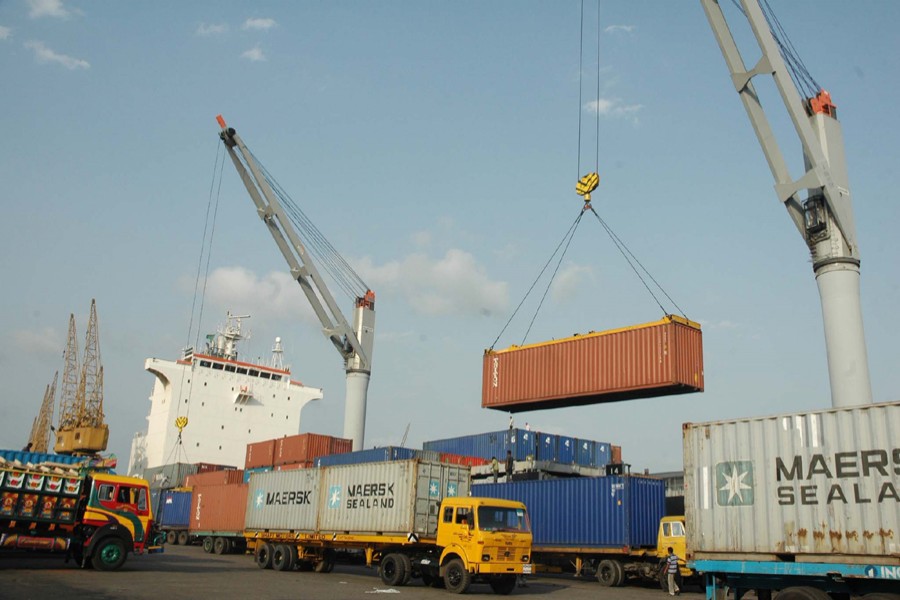Bangladesh's overall trade deficit may cross US$26 billion by this fiscal yearend as trading sector faces unprecedented headwind while a healthy balance-of-payments position continues for lesser import spending.
A latest central-bank projection portrays such a macroeconomic scenario, saying that the country's deficit in trade with the rest of the world is expected to rise from $22.80 billion in the just-concluded FY 2020-21 to $26.07 billion in FY'22.
Talking to the FE, a senior official of the Bangladesh Bank (BB) said the growth in foreign trade, covering both export and import, is likely to fall in the current fiscal year compared with the previous one because of 'base effect'.
"But the amount of export earnings and import payments will increase significantly in FY'22," the central banker says explaining the overall outlook of external trade that undergoes severe adversities for the ongoing corona pandemic that upended the planet.
Base effect refers to the effect that the choice of a basis of comparison or reference can have on the result of the comparison between data points.
Under the BB projections, the growth in export earnings will come down to 13 per cent in FY'22 from 15.4 per cent a year before while import-payments growth will fall to 13.50 per cent from 19.7 per cent.
The BB official also expects import payments to increase significantly this fiscal year following higher purchase of raw materials for readymade garments along with resumption of infrastructure- development works across the country.
"Higher inflow of remittance is expected to help reduce the amount of current-account deficit further in FY'22 despite the upward trend in import-payment obligations," the banker predicts.
The current-account deficit is likely to be reduced to $2.57 billion by the end of this fiscal year from $3.81 billion in the previous fiscal. It was $4.72 billion in FY'20.
Meanwhile, the BB has projected that the country would receive $29.73 billion as inward remittances in the current fiscal year as against $24.78 billion in FY'21 despite the ongoing Covid-19 pandemic.
"The rising trend in import-payment obligations may continue by the end of this fiscal year," Mustafa K Mujeri, former Director-General at Bangladesh Institute of Development Studies (BIDS), told the FE Sunday.
The upturn in fuel-oil prices on the global market may push up the import-payments pressure on the economy, according to Dr. Mujeri, also a former chief economist at the BB.
The BB projection depends on how the Covid-19 situation evolves, he added.
On the other hand, the financial account's surplus is projected to fall at $7.03 billion in FY'22 from $13.08 billion a year ago.
"….the current-account deficit is anticipated to be reduced further aided by strong remittance inflows, and the overall balance is expected to experience a healthy surplus mostly supported by enduring performances of the financial accounts in FY' 22," the central bank says in its latest monetary policy statement (MPS).
With the moderation of the current-account deficit, the overall balance of BoP is primarily estimated to have a surplus of $9274 million in FY'21, underpinning strong performances in the financial accounts mainly led by higher inflows of net FDI and other investments, including other short-and long-term loans, and trade credit, the MPS explained.
As a result, BoP is likely to drop to $5.10 billion by the end of this fiscal from $9.27 billion in the previous fiscal. It was $3.17 billion in FY'20.


